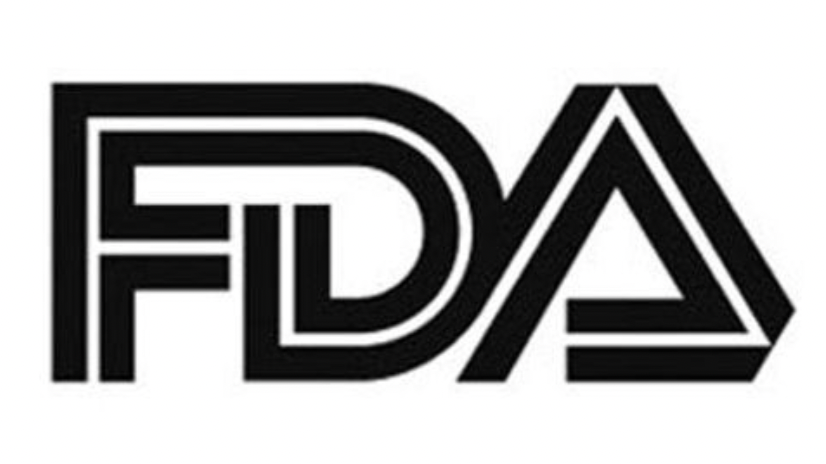FDA Clears Phase 1/2 Study of ABT-101 in Non–Small Cell Lung Cancer
The FDA has granted approval for an investigational new drug protocol amendment for ABT-101, a mutant selective tyrosine kinase inhibitor which has shown superior selectivity against HER2 exon 20 mutations in NSCLC in preclinical studies.

The FDA has granted approval an investigational new drug protocol amendment for the phase 1b/2 trial (NCT05532696) of ABT-101 in patients with non-small cell lung cancer (NSCLC), according to AnBogen Therapeutics.1
ABT-101 is a potent, orally administered, irreversible, mutant selective tyrosine kinase inhibitor (TKI) which targets several oncogenic kinases, including epidermal growth factor receptor (EGFR), and human epidermal growth factor receptor 2 (HER2).
In preclinical studies, ABT-101 has superior selectivity against HER2 exon 20 mutations and has shown to significantly inhibit the growth of tumor harboring HER2 exon 20 insertions.
"We are pleased to receive approval from the FDA on the protocol amendment, and continue to drive ABT-101 clinical development program forward. With the mission in mind, we want to make impact to transform the treatment for patients with non–small cell lung cancer harboring exon 20 insertions in HER2," said John Tsu-An Hsu, PhD, founder and chief executive officer of Anbogen Therapeutics, in the press release. "We look forward to working closely with FDA and all of our investigators as we enroll and dose the patients with non-small cell lung cancer. ABT-101 demonstrates excellent therapeutic potential and superior safety profile compared to competitors that are under clinical development, and it meets challenges of unmet medical needs for cancer drugs targeting exon 20 insertions in HER2."
The open-label, multicenter, phase 1b/2 trial is evaluating ABT-101 to determine its recommended phase 2 (RP2D) and to explore its preliminary antitumor activities in patients with HER2 mutated NSCLC.2
Phase 1 of the study is the dose-escalation portion designed to determine the RP2D of ABT-101 in patients with solid tumors. Those enrolled will be put into a dose finding study scheme with the assessment of dose-limiting toxicities (DLTs). DLT assessment will take place concurrent to the treatment cycle
In phase 2, the dose-expansion portion of the trial, investigators will evaluate the safety and efficacy of ABT-101 at the RP2D concluded from phase 1b. This portion of the trial will enroll patients with NSCLC harboring HER2 mutations. Both phases will administer patients ABT-101 by oral administration on a 28-day cycle.
Enrollment in the trial is open to male or female patients aged 20 years or older with histologically or cytologically confirmed advanced solid tumors (part 1) or NSCLC with HER2 mutations (part 2). To be included in the study, patients must go through a screening period, treatment period, and safety/follow-up period. Patients given the study treatment will continue until progressive disease or another reason for discontinuation.
Other enrollment requirements include having an ECOG performance status of 0 or 1, being an appropriate candidate for experimental therapy, and adequate organ function. Additionally, patients enrolled in part 2 must have measurable disease per RECIST 1.1 criteria.
The primary end point for part 1 trial is to determine the RP2D while in part 2 it is to determine antitumor activity based on objective response rate (ORR). Secondary end points include, maximum plasma concentration, area under the plasma concentration time curve of ABT101, duration of response, progression- free survival, overall survival, ORR, number of patients with treatment-emergent adverse events, and disease control rate.
References:
AnBogen therapeutics receives approval from U.S. FDA for phase Ib/II protocol amendment for ABT-101. News release. AnBogen Therapeutics. September 13, 2022. Accessed September 14, 2022. https://prn.to/3qAZTNY
Phase 1b/2 study to evaluate ABT-101 in solid tumor and NSCLC patients. ClinicalTrials.gov. Updated September 8, 2022. Accessed September 13, 2022. https://clinicaltrials.gov/ct2/show/NCT05532696#studydesign
Brose and Laetsch Discuss Rare Actionable Targets in Patients With Thyroid Cancer
January 12th 2023During a Targeted Oncology case-based roundtable event, Marcia S. Brose, MD, PhD, and Theodore W. Laetsch, MD, discussed the data supporting the use of NTRK inhibitors in a patient with metastatic papillary thyroid cancer.
Read More
Larotrectinib Demonstrates Robust Responses in TRK Fusion-Positive Lung Cancer
September 6th 2022In an interview with Targeted Oncologyy, David S. Hong, MD, discussed an updated analysis of larotrectinib and the data supporting the agent for the treatment of TRK fusion-positive lung tumors.
Read More